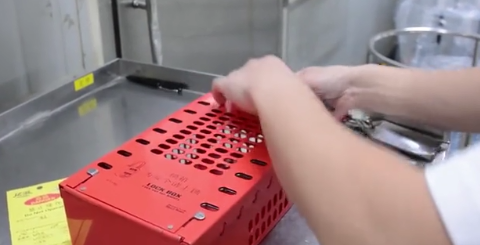What is Lockout Tagout? The Importance of LOTO Safety
As industrial processes evolved, advancement in machineries started to require more specialized maintenance procedures. More serious incidents occurred that involved highly technological equipment at the time causing problems for LOTO Safety. Servicing powerful energized systems were identified as one of the key contributors to injuries and fatalities in the evolving times
In 1982, the American National Standards Institute (ANSI) published its first guidance on the practice of lockout/tagout to provide safety precautions in the maintenance of hazardous energy sources. LOTO guidelines would then develop into an Occupational Safety and Health Administration (OSHA) regulation in 1989.
What is lockout tagout?
Lockout/tagout (LOTO) refers to safety practices and procedures that ensure dangerous machines are properly shut off and are not able to unexpectedly release hazardous energy during maintenance activities.
OSHA Guidelines
Guidelines as prescribed by OSHA covers all sources of energy, including—but not limited to—mechanical, electrical, hydraulic, pneumatic, chemical, and thermal. Manufacturing plants would typically require maintenance activities for one or a combination of these sources.
LOTO, as the name implies, specifies two general approaches to ensure that employees are protected from dangerous equipment during maintenance activities – 1) lockout, and 2) tagout. Lockout physically limits the access to certain equipment while tagout provides visible warning signs to inform employees of potential hazards.
How lockout tagout works
OSHA, through Title 29 of the Code of Federal Regulations (CFR) Part 1910.147, provides standards on the proper maintenance and servicing of equipment that can potentially release hazardous energy. Companies should identify equipment that is required by law to abide by these maintenance standards. Not only to avoid hefty fines, but, more importantly, to ensure the safety of the workers.
A robust documentation process is required to ensure all equipment complies with federal regulations on LOTO processes during maintenance activities. The capability to add LOTO procedures to the CMMS can significantly improve visibility on the progress of more hazardous tasks.
